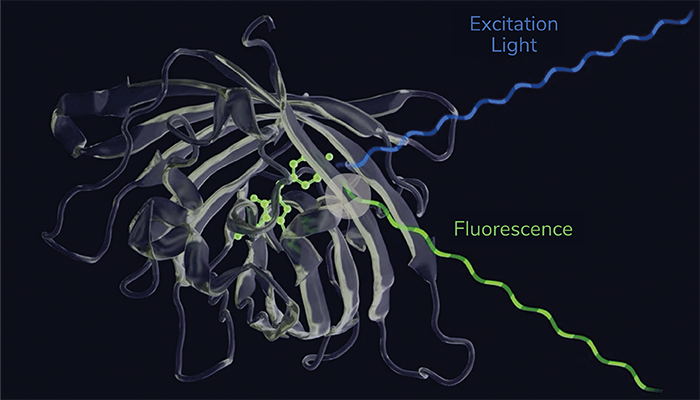
A transatlantic team has developed a platform that could help accelerate the discovery and evolution of nanosensors, paving the way for more efficient diagnostics and molecular imaging. The system, the result of a collaborative research project involving the Wyss Institute at Harvard University, Harvard Medical School (HMS), MIT, and the University of Edinburgh, UK, uses genetically encoded fluorogenic amino acids (FgAAs) to create nanosensors that can detect proteins, peptides, and small molecules with high sensitivity and speed. These nanosensors exhibit significant fluorescence increases – up to 100-fold – allowing real-time, wash-free target sensing and live-cell imaging.
The platform integrates a streamlined workflow that includes the rapid design, screening, and optimization of nanosensors. Indeed, by employing a combination of genetic code expansion and cell-free translation technologies, the researchers were able to produce and test hundreds of nanosensor candidates in parallel within hours – in stark contrast to the weeks typically required by conventional methods.
A key application demonstrated in the study involved the detection of SARS-CoV-2 antigens. Here, the engineered nanosensors were capable of identifying the viral spike protein with high specificity, even differentiating between variants. Beyond disease diagnostics, the study also showcases the potential of the technology in live-cell imaging, where the nanosensors can be used to track dynamic processes within cells with minimal interference.
"We have long worked on expanding the genetic code of cells to endow them with new capabilities to enable research, biotechnology and medicine in different areas, and this study is a highly promising extension of this endeavor in vitro," said study leader George Church, from the Wyss Institute for Biologically Inspired Engineering, in a press release. "This novel synthetic biology platform solves many of the obstacles that stood in the way of upgrading proteins with new chemistries, as exemplified by more capable instant biosensors, and is poised to impact many biomedical areas."



